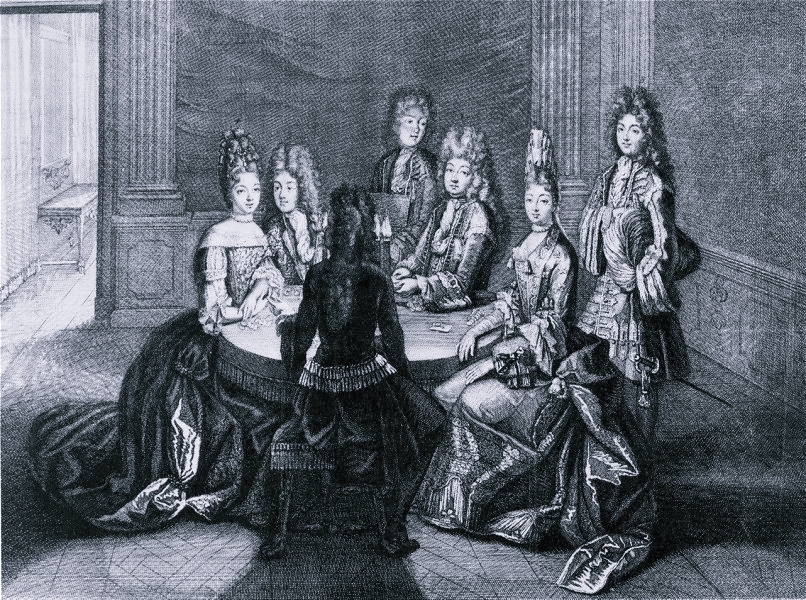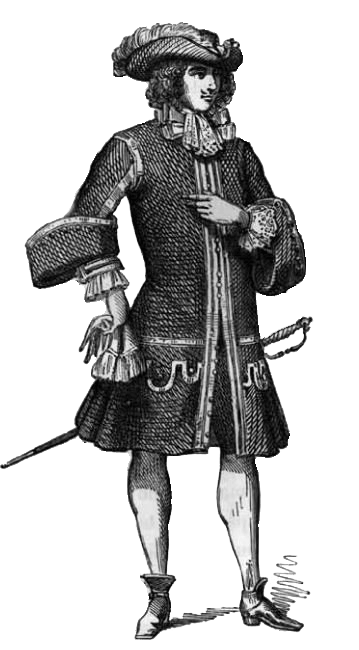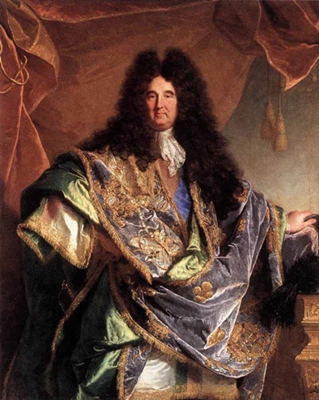Dangeau’s Diary, July & August 1685

1st. — The Duke of Monmouth attacked the King’s troops the 15th of this month. He was defeated, then pursued, and taken on the 17th, disguised and hidden in a ditch. Lord Gray was taken a few days after. They were conducted to London and saw the King. The duke of Monmouth tried all that submission and prayers could effect, but in vain. He was taken to the Tower and a few days afterwards was beheaded. On the day of execution he manifested great firmness and resolution. He was neither catholic nor protestant, but one of the illuminati. He asserted that the Duchess of Monmouth was not his wife and that he had carried her off by force, but that he had married Madame de Vinthor, to whom he sent from the scaffold some seals and jewels belonging to her, begging the messenger to carry them to her in Zealand, where she awaited the success of his enterprise. Lord Gray is not yet executed, as it is necessary his trial should be according to the usual forms, which can not take place for two or three months. Lord Feversham commanded the army against the Duke of Monmouth and has all the honour of his defeat and capture. The King appointed Marshal Humieres to proceed to England and to compliment the King upon the defeat of the duke of Monmouth. A courier, belonging to the Princes de Conti, the bearer of many letters, was stopped in Alsatia, by order of the King. All the letters were brought to His Majesty, who found amongst those of Monsieur de la Roche-Guyon, of Monsieur de Liancourt, and of Monsieur d’Alincour, so many impertinences and even so much scandal, that after having made Monsieur de la Rochefaucault and the Duc de Villeroi acquainted with the follies of their children, His Majesty, with the consent of their fathers, exiled them. Monsieur de la Roche-Guyon was ordered to reside at Nerteil, Monsieur de Liancourt was sent to the Citadel of Oleron, to which La Case was ordered to escort him, and the Marquis d’Alincour was sent into Berry, to a very gloomy chateau belonging to the Duc de Villeroi in that part of the country. The King wished only to send him to Neuville, to the Archbishop of Lyons, but the father did not conceive this punishment sufficient. Other young persons are also suspected of having written letters and some have even been accused of it, perhaps very unjustly.* There has been a great disturbance in Spain, respecting a Frenchman, who, displeased with the Queen of Spain (Marie Louise d’Orléans, daughter of Monsieur), and jealous of La Cantin, the Queen’s nurse, had accused her of wishing to poison the King. The Queen’s name even was even mentioned. Many Frenchmen have been massacred in Madrid. The accusers are said to be supported by the count d’Oropeza, head of the faction of the Queen-mother, and entirely opposed to the Comte de Monterray, head of the young Queen’s party. It is said that the King of Spain did not immediately suspect his wife, but the ministers, notwithstanding, annoy her very much. It is likely this affair will be productive of important consequences. This Cantin had married a person named Viremont, formerly a captain of grenadiers in our army, who had been obliged to quit the Kingdom for having fought a duel during the siege of Lembourg, I believe in 1676, and who received a pension from the Queen for taking care of her hunters, of which she was very fond. The accuser’s name is Leveillance. He had been page to Monsieur de Villars during his embassy.
*(The letters of the two sons of the Duc de Rochefaucault, and the one from the Marquis d’Alincour, son of the Duc de Villeroi, consisted of sarcasms upon the King and Madame de Maintenon, criticized his reviews, his occupations and amusements, with all the court news made fun of. D’Alincour’s letter was very impious, but was comparatively kind to the King, which lead his grandfather, the Marshal de Villeroi, to think he should be pardoned, but the impertinence of the other two was inexcusable. The King never pardoned Liancourt, who was confined for several years with great severity and he was equally inexorable with the Princes de Conti. The first died in open disgrace, and the other at length sunk under grief and disappointment at never being appointed to the command of an army, notwithstanding his apparent pardon.)
10th. — I am informed that a Jesuit, named Molinos, has been put into the Inquisition at Rome, accused of wishing to become the chief of the new sect called Quietists, whose principles are somewhat similar to those of the Puritans in England. It is said that people of some rank had become his followers.
14th. — A Spanish courier has brought the intelligence that Madame Cantin, the Queen’s nurse, has been put to the torture, and that her false accusers have been rather rewarded than punished.
15th. — Monsieur received a letter from his daughter, the Queen of Spain, informing him that she doubts not her life will soon be attempted, since her honour has already been so wickedly attacked. Her letter is so pathetic and touching, that all shed tears who read it.
l7th. — Monsieur de Croissy declared to the Spanish envoy, that if any attempt was made upon the Queen’s life at Madrid, the King would inarch a hundred thousand men against Spain and would take signal vengeance for so infamous a crime. He even added, that if the Queen of Spain died a natural death at this juncture, it would be the most serious misfortune for the Spanish monarchy and that she would be considered here to have been poisoned. That therefore they ought to be particularly attentive to her health and that he must so inform the King, his master, and his ministers.
18th. — It is known that Cantin, the Queen of Spain’s nurse, has arrived at Badajos, on her way to France as an asylum. Her arms are not broken as was reported, but she is much lacerated with the tortures she has undergone.
21st. — The King and Monseigneur, with many ladies, went to dine at Marly .The Princess de Conti and the Duchess de Roquelaure, danced with the principal male and female opera dancers. There was afterwards a magnificent supper.
August
24th. — Little Don Cosme, the feuillant, who had preached at court, even with some success, has been driven from his convent, and is set, they say, in pace.



